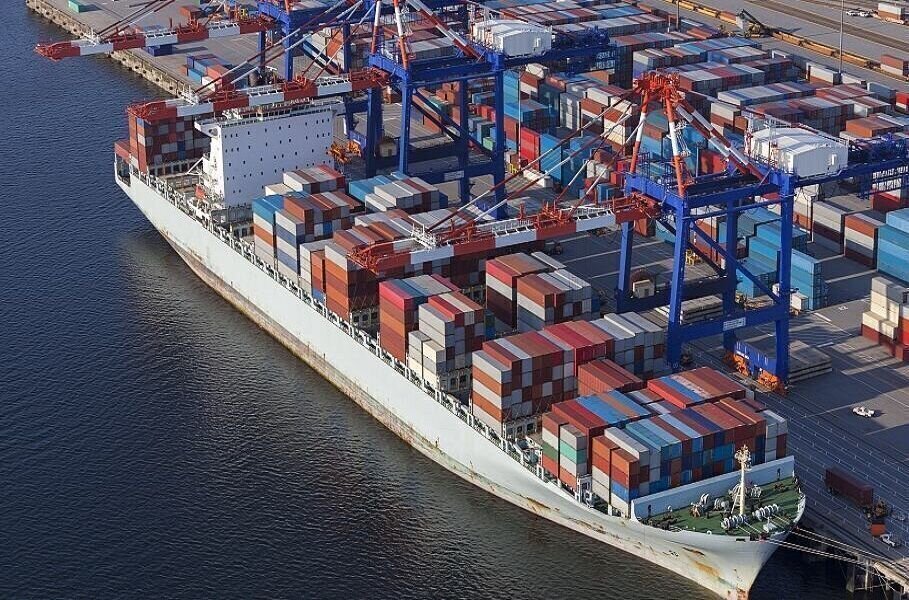Annual exports to Belarus rise 34%

TEHRAN – Iran exported $20 million worth of commodities to Belarus in the previous Iranian calendar year (ended on March 19), registering a 34 percent rise compared to the year before.
Based on the data released by Iran’s Trade Promotion Organization (TPO), carpets, polystyrene, polyester, powder paint, mineral oils, medicine, fruits, polyethylene, pistachios, raisins, and tomato paste have been the main items exported to Belarus in the mentioned year.
The Islamic Republic also imported $59 million worth of products from Belarus in the past year, which indicates an increase of 35 percent compared to the year before.
Back in October 2023, the Tehran Chamber of Commerce, Industries, Mines and Agriculture (TCCIMA) hosted an Iran-Belarus business forum in which the two sides stressed the need to take necessary measures for reaching an annual trade of $1.0 billion.
During the forum, which was attended by a delegation from the Minsk Department of the Belarusian Chamber of Commerce and Industry and representatives of several Iranian companies, the two sides signed a memorandum of understanding (MOU) to expand cooperation between the two chambers to achieve the above-mentioned trade target.
Iran and Belarus also signed a comprehensive cooperation roadmap and seven memorandums of understanding in mid-March 2023, as Belarusian President Alexander Lukashenko visited Tehran.
The cooperation roadmap and MOUs include various commercial, transportation, agricultural, and cultural fields.
The roadmap was signed by the presidents of the two countries, while the MOUs were inked by senior officials from the two sides.
Speaking at a joint press conference with his Belarusian counterpart after signing the document, Iranian President Ebrahim Raisi said: "Good agreements were made in the field of industry, mining, trade, agriculture, roads, and various fields, and we hope that it will be a step towards the development of the two countries."
Referring to the determination of Iran and Belarus to develop relations in all fields, Raisi said: "Both countries are against unilateralism. We believe that independent countries can have good relations with each other which leads to the neutralization of sanctions."
Lukashenko, for his part, pointed to his last visit to Iran in 2006 and said that no sanctions or pressures have been able to stop the Iranian nation from progressing, and it is a fact that an independent and strong Iran is continuing its path.
Referring to the MOUs between the two countries, Lukashenko noted that if all these MOUs are implemented, the two countries can achieve $100 million in annual trade.
"The volume of trade between the two countries tripled in 2022 compared to 2021," he noted.
The Belarusian president expressed hope that the implementation of the comprehensive cooperation roadmap will help develop the relations between the two countries even more.
As part of the Belarusian delegation’s schedule in Tehran, the country’s Minister of Industry Rogozhnik Alexander Nikolaevich met with former Iranian Industry, Mining, and Trade Minister Reza Fatemi-Amin to discuss ways of developing mutual ties.
During the meeting with Nikolaevich, who was accompanied by a group of industrial officials, Fatemi-Amin referred to the cooperation of the Export Guarantee Fund of Iran (EGFI) with its Belarusian counterpart and also an agreement between banks of the two countries, emphasizing that the infrastructure needed for the development of trade between the two countries has been created.
He stated that an agreement on the possibility of barter trade between the two countries is also going to be signed soon, adding: “With the full accession of Iran to the Eurasian Economic Union (EAEU) in less than a year from now 80 percent of the tariffs between the two countries will be zeroed.
Nikolaevich in his turn said Belarus pays special attention to the expansion of trade relations with Iran.
“In the days when both countries have been subjected to heavy and cruel sanctions, we must make a double effort to defeat the sanctions,” Nikolaevich suggested.
Stating that with Iran's joining the EAEU, many issues in the field of transportation will be resolved, he emphasized: “Our goal is for Iranian products to flourish in the Belarusian market and Belarusian products to enter the Iranian market.”
In his joint press conference with the Belarusian leader after a meeting at the Saadabad Palace, Raisi asserted that the Islamic Republic has capitalized on the threat of unilateral sanctions as a chance to advance significantly.
“Iran has benefited from the sanctions put on the country, and we have achieved remarkable advances despite the threats,” Raisi said.
He added, “We are eager to share our experiences with our good friend Belarus.”
Raisi also said the only way to overcome sanctions and advance is mutual opposition to unilateralism.
Lukashenko, for his part, stated that “Iran is flourishing and Iran keeps growing despite sanctions and pressure. The signing of several documents today can result in a 100 million dollar increase in commerce between the two nations if they are fully implemented.”
The president of Belarus continued, “Sanctions are opportunities, and two nations should not lose these possibilities.”
He remarked that both nations have a desire for a fair and multipolar world and that their stances on international and regional issues are comparable.
EF/
